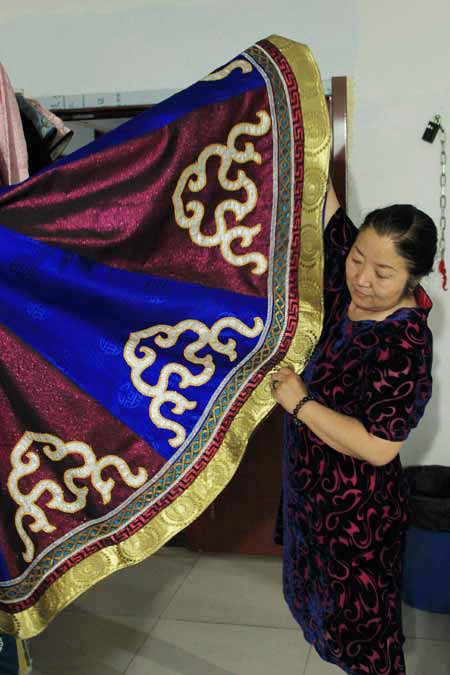 |
| Traditional costumes of the Ujimqin tribe feature flamboyant colors. |
Bao Zhimei, 35, is Wu's daughter. After graduating in 2003 from a fashion school where she studied Western-style clothing design, she joined her family's business to help redesign the style of clothing that has been passed down through generations.
"Most old-time Mongolian costumes are robes, which are inconvenient for urban life," Bao says. "That is why I try making short skirts or sleeveless blouses, for example, to better match what modern women like. Nevertheless, the key part of traditional costume, like the edging and decorations, are kept.
"People are more conscious about their identity with ethnic groups in recent years, with the revival of traditional culture," she continues.
"Many parents will buy a piece of Mongolian clothing for their children as gifts, before they go to college or go abroad."
About 70 percent of orders for their workshop now come from individuals, but performance costumes still play an important role in their business. The workshop even provides a ballroom to facilitate arts troupes choosing different costumes.
Some other local designers have even bigger outlooks on the resurrection of the history of this native dress.
Erdenmonh, 39, a designer, is the youngest among 20-odd "inheritors of Mongolian costume arts" titled by the cultural department of the autonomous region's government in 2006. Erdenmonh credits his strong passion for creativity to his choreographer mother. He is especially fascinated by the complicated Mongolian headwear pieces, and has spent years collecting different styles around Xilin Gol. He chooses more diverse ways to promote his combination of tradition and fashion.
